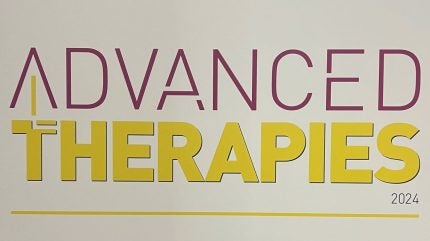
The current prospects and obstacles in the cell and gene therapy space were the key focus of a panel at the Advanced Therapies conference, which took place on 19-20 March in London, UK.
During the panel session entitled ‘Autologous versus allogeneic?’ four experts discussed the development challenges of allogeneic cell therapies such as the risk of rejection, integration barriers and the need for further engineering to make allogeneic therapies hyper-immunogenic.
Stefanos Theoharis, CEO of OneChain Immunotherapeutics, which is developing chimeric antigen receptor (CAR)-T therapies, said: “In theory, allogeneic cell therapies have all the advantages, are cheaper and immediately available for the patient.”
He added that during the early days of autologous cell therapies, 30% of patients were not able to receive autologous cell products, either due to disease progression or death before the completion of the manufacturing process. In comparison, allogeneic therapies can be manufactured faster.
In this oncology space, “a one-size-fits-all approach is unlikely to be successful,” said Raphael Ognar, president, chief executive officer and co-founder of the cell therapy biotech NKILT Therapeutics. Current cell therapy methods have several limitations, including accessibility issues and the need for more cost-effective and efficient manufacturing processes. With autologous cell therapies, Ognar said: “Their big Achilles’ heel is that you can only manufacture them in a handful of centres in Europe, and maybe two handfuls of centres in the US.” He added that this will pose a challenge when tackling common cancers such as lung, breast and prostate cancer.
See Also:
Ognar concluded that the way forward is to find the most adaptive approach that will best suit a particular type of cancer. In some cases, allogeneic therapies could keep the patient cancer-free until clinicians find the next treatment step, while in other cases, autologous therapies will be best suited as the only treatment that will have the patient responding to therapy, he said.
How well do you really know your competitors?
Access the most comprehensive Company Profiles on the market, powered by GlobalData. Save hours of research. Gain competitive edge.

Thank you!
Your download email will arrive shortly
Not ready to buy yet? Download a free sample
We are confident about the unique quality of our Company Profiles. However, we want you to make the most beneficial decision for your business, so we offer a free sample that you can download by submitting the below form
By GlobalDataLindsay Davies, CSO at Swedish biotech NextCell Pharma, highlighted the need to understand the environmental factors that impact how these diseases are evolving and then assign therapies that will provide longevity and commercial applicability.



